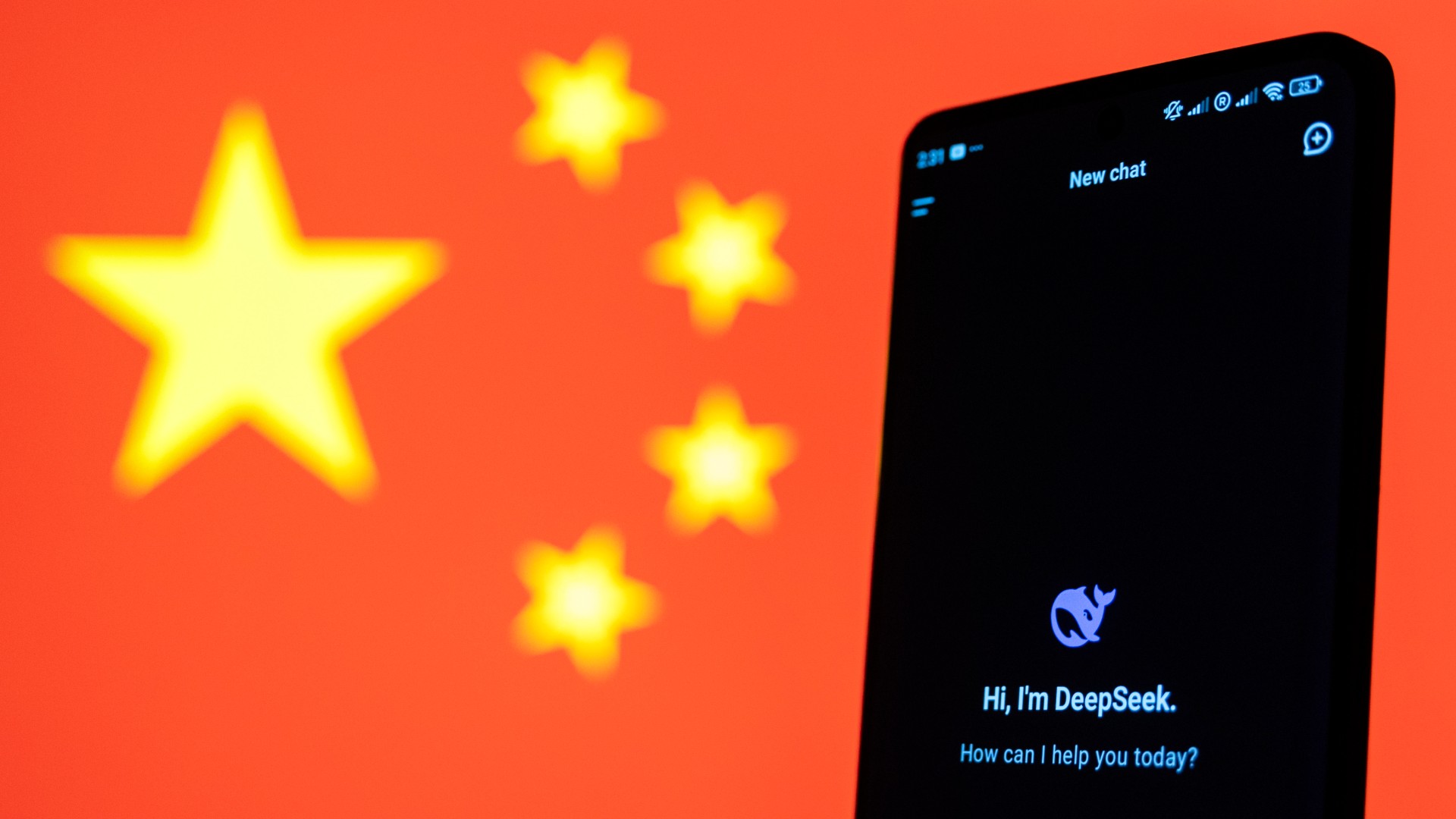Chinese AI company DeepSeek rocks the tech world
America's hold on artificial intelligence is on shaky ground


A free daily email with the biggest news stories of the day – and the best features from TheWeek.com
You are now subscribed
Your newsletter sign-up was successful
An artificial intelligence startup in China has suddenly become more popular than ChatGPT in app stores, shaking the confidence of American investors and leaving tremors throughout the stock market. With a model that offers comparable performance at seemingly a fraction of the cost, the DeepSeek chatbot is causing a reckoning over American dominance in the tech industry.
Challenging the 'bigger is better' narrative
The U.S. has imposed sanctions on advanced chip sales to slow down progress in AI elsewhere. At the same time, U.S. tech giants rely on sprawling data centers powered by Nvidia GPU chips. These sanctions, first imposed under the Biden administration, have "cut China off from critical AI hardware, forcing its developers to innovate with far fewer resources," said The Spectator. This is the environment that led to the birth of DeepSeek. The relatively unknown Chinese AI startup has "emerged as a formidable challenger to the 'bigger is better' narrative" while achieving the seemingly impossible: "delivering performance comparable to the West's cutting-edge models" at a much lower price point.
In a 22-page paper that sent shockwaves through the tech world, DeepSeek revealed the workings of its new AI model called DeepSeek-R1. A team of researchers claimed to have used around 2,000 of Nvidia's H800 chips, drastically undercutting the number and cost of more advanced H100 chips typically used by the top AI companies. The chatbot run on the R1 model distinguishes itself from competitors like ChatGPT by "articulating its reasoning before delivering a response to a prompt," said Bloomberg. DeepSeek said its R1 release performs on par with the latest iteration of ChatGPT. The company also offers licenses for developers interested in creating chatbots with the technology "at a price well below what OpenAI charges for similar access." The efficiency and cost-effectiveness of the model "puts into question the need for vast expenditures of capital to acquire the latest and most powerful AI accelerators from the likes of Nvidia," Bloomberg added. It also highlights "U.S. export curbs of such advanced semiconductors to China," which were supposed to "prevent a breakthrough of the sort that DeepSeek appears to represent."
The Week
Escape your echo chamber. Get the facts behind the news, plus analysis from multiple perspectives.

Sign up for The Week's Free Newsletters
From our morning news briefing to a weekly Good News Newsletter, get the best of The Week delivered directly to your inbox.
From our morning news briefing to a weekly Good News Newsletter, get the best of The Week delivered directly to your inbox.
While murmurs about the Chinese AI were initially met with skepticism, once it was released as open-source software, the industry's "skepticism morphed into worry," said The New York Times. When Americans began downloading DeepSeek's model and its mobile app hit the number one spot on Apple's App Store, that worry "tipped into full-blown panic." The emergence of DeepSeek-R1 is "AI's Sputnik moment," venture capitalist Marc Andreessen said on X.
A shock to the market
Investors' concerns triggered a swift and brutal reaction in the financial markets. On Monday, the share price of U.S. chipmaker Nvidia dropped by 17%, losing more than $600 billion in market value. Microsoft and Google owner Alphabet also took massive hits, dropping $130 billion and $80 billion, respectively. The drop highlights how the U.S. has "stupidly engineered a very concentrated stock market that rises and falls in part on the level of AI joy or despair," David Dayen said at The American Prospect. There are "real-world impacts to this mistake," as much of our stock market "runs on AI hype." The fervor among the five leading Big Tech firms to win the AI race is "in many ways the engine that is currently driving the U.S. economy," said Dayen. "And when that's revealed as a bubble, we all feel the pop."
DeepSeek's success "upends the investment theory that drove Nvidia to sky-high prices," said The Verge. It suggests that "just splashing out a ton of money isn't as protective as many companies and investors thought" and hints that "small startups can be much more competitive with the behemoths — even disrupting the known leaders through technical innovation."
A free daily email with the biggest news stories of the day – and the best features from TheWeek.com
Theara Coleman has worked as a staff writer at The Week since September 2022. She frequently writes about technology, education, literature and general news. She was previously a contributing writer and assistant editor at Honeysuckle Magazine, where she covered racial politics and cannabis industry news.
